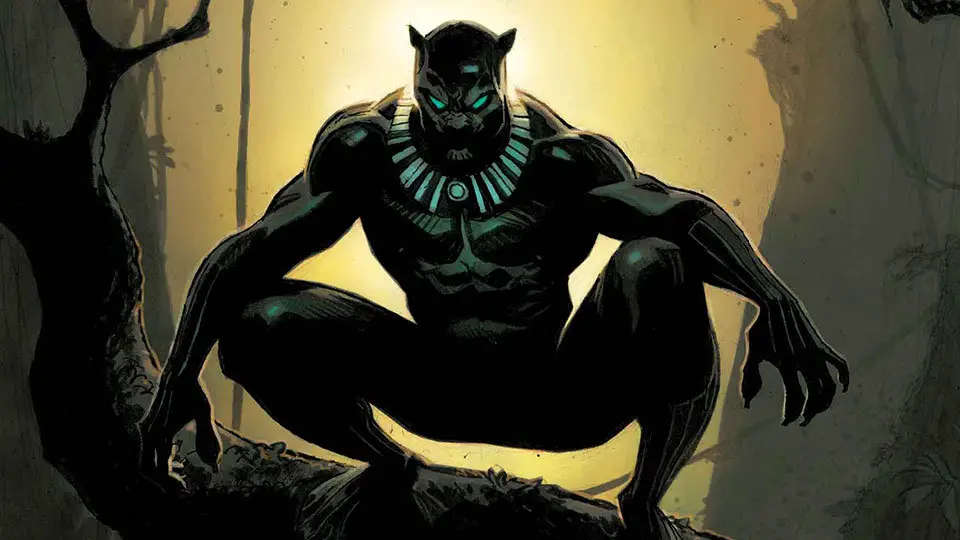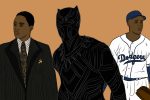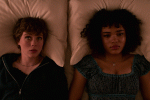After seeing a movie like “Wonder Woman,” it’s easy to write off male-centered superhero movies forever. There is nothing quite like the feeling I experienced upon walking out of the theater, convinced that I can do anything and everything. Who needs dudes when a girl can empower herself?
The wild success of the film might just be all the incentive a misguided feminist needs to avoid seeing the next groundbreaking box-office hopeful, “Black Panther,” but doing so would be a mistake of epic proportions.
Starring the likes of Chadwick Boseman, Lupita N’yongo, Michael B. Jordan, Angela Basset and Forest Whittaker, “Black Panther” boasts a 90 percent black cast; for companies like Marvel and Disney, this is virtually unheard of, as more often than not, characters like the Black Panther get relegated to a sidekick who will, if tropes hold true, probably die to further the character development of a white character.
“Black Panther” came to life in “Fantastic Four” issue #52 in 1966 during the height of the Civil Rights Movement, though the name predates the Black Panther political organization. For a brief time, the character’s name changed to “Black Leopard” to avoid political connotations, but creators Stan Lee and Jack Kirby, in addition to fans of the superhero, disliked it so much that the name was changed back.
However, the mere existence of the Black Panther was political in and of itself, as the character was the first black superhero given actual superpowers and not drawn as a racist caricature; in addition, the Panther is the first black superhero to be given a solo title, period.
The current incarnation of the Panther in the comic universe is written by Ta-Nehisi Coates, a distinguished author and journalist whose work concerning the treatment of African Americans in the United States is renowned.
Black Panther’s comic book origins set him in the fictional African country of Wakanda, considered to be the most technologically advanced country in the Marvel universe. Black Panther appears initially as T’Challa, the Prince of Wakanda, serving his father, King T’Chaka. The Black Panther title designates the chief of the united tribes of Wakanda, who must undergo rigorous physical tests, in addition to possessing a birthright, to claim the title.
Unfortunately, due to the sordid history of colonization in Africa, the people of Wakanda choose to keep their country secret from the rest of the world, and honestly, I can’t blame them. In addition to wanting to shield themselves from European colonization, the Wakandans also keep their homeland secret because, after a meteorite containing the super metal vibranium, a.k.a. the metal that makes up Captain America’s shield, lands in the country, they fear that outsiders will want to exploit the area’s natural resources in order to get to the precious element.
Audiences were given a taste of T’Challa in “Captain America: Civil War,” which provided a glimpse into a slightly altered version of T’Challa’s origin story. His father’s death occurs after a bombing during a United Nations hearing to sign measures that will put restraints on the Avengers.
The subsequent blaming of Bucky for that death at the beginning of the movie serves as the catalyst for the rift between two factions of the Avengers. A few years ago, this would have been the extent of Black Panther’s story, and T’Challa would have disappeared into the Marvel woodwork until he was needed to bolster a superhero line-up when another “Spider-Man” movie was slated for release.
Instead, Black Panther was given a solo movie, and it is critical that the movie succeeds at the same level “Wonder Woman” did, if not even surpassing it.
Hollywood has a history of going about toe deep into the diversity pool, saying it’s too cold and promptly leaving, all the while still demanding a pat on the back for the effort. When movies featuring diverse casts flop at the box office, it is a confirmation of Hollywood-executive fears that current audiences have no desire to see characters on the big screen that aren’t straight, white or male.
“Wonder Woman” defied these notions and ended up becoming the highest-grossing superhero movie helmed by a woman. In fact, “Justice League” is undergoing tremendous rewrites after the unprecedented success of “Wonder Woman,” undoubtedly to include more Diana.
While Marvel tends to have a better formula when it comes to cinematic releases, a tried-and-true system that allows passable movies into the world with minimal risk of failure, they’re all rather identical. All good formulas need to be tested with something new every once in a while, or else you’re at risk of stagnating.
A truly inclusive feminist ideology supports not just women, but people of color as well. It helps no one if you support “Wonder Woman” as a self-proclaimed feminist and not “Black Panther.”
I’m looking forward to “Black Panther,” because it’s about time that T’Challa was given the screen time he deserves.
I want to be smothered to death by Black Panther merchandise the same way Captain America and Iron Man haunt my every step in Target, none of which will happen unless moviegoers put their money where their mouthes are. The world needs more diverse superheroes.


















[…] Surround yourself with supportive people whose opinions you […]